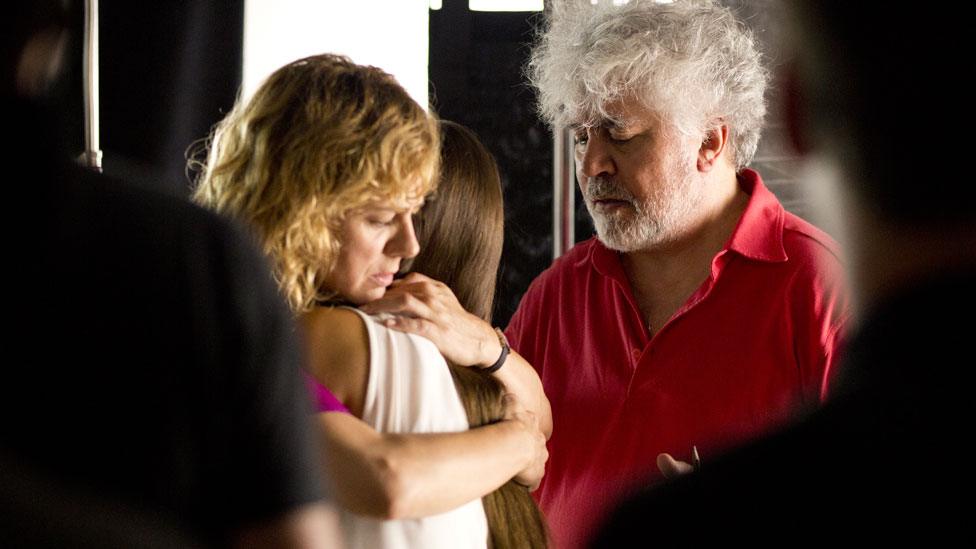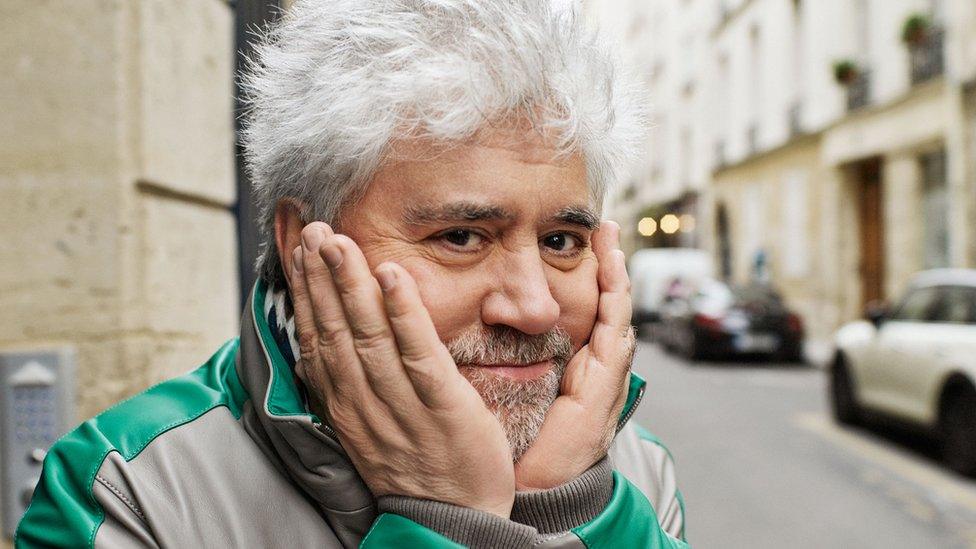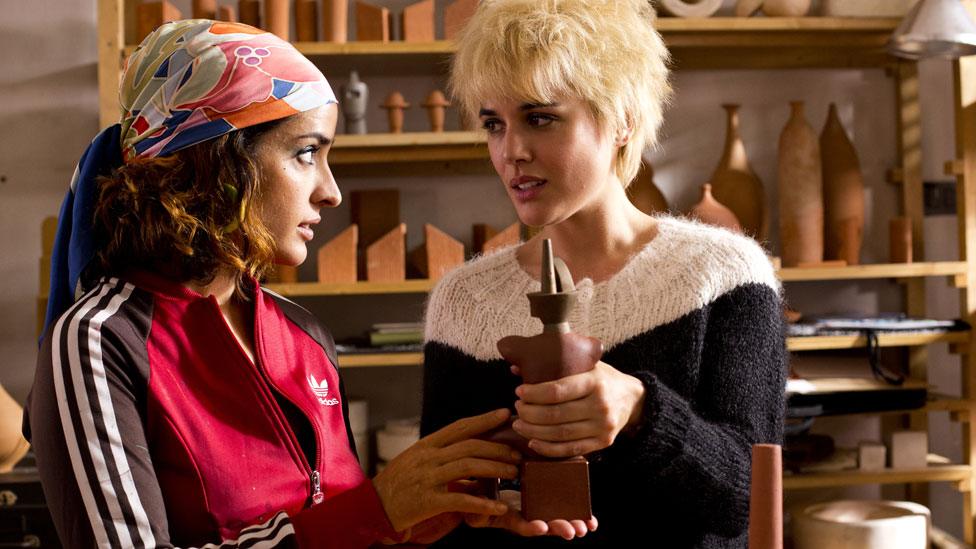Pedro Almodovar: Why there was no room for comedy in my new film
- Published

Pedro Almodovar's films are often a riot of colour and laughter.
But for his 20th feature, the acclaimed Spanish director has taken a more sober turn. So much so that he took out jokes that had cropped up during rehearsals.
Julieta is the story of a mother, her estranged daughter and the guilt that haunts them both.
It is based on three short stories by Nobel Prize-winning author Alice Munro, from her 2004 collection, Runaway.
The film was originally planned to be Almodovar's first English-language film - with Meryl Streep in talks for the title role - but the director decided it needed to be set in his homeland.
'Painful subject'
During our interview at his London hotel, he speaks in Spanish - but occasionally interrupts his interpreter to make sure she is explaining his words correctly.
He also drinks tea and makes notes ("It gives me a kind of security," he says with a smile), drawing a diagram at one point to explain the narrative structure of a crucial scene.
So why does Julieta have such a serious feel to it?
"The tone, which is a very different tone to my earlier films, is very much inspired by the material I am working with," Almodovar says.
"I wanted to get closer to such a painful subject… I was very determined to do this, and it cost me actually an awful lot to have no humour that would distract from this approach.
"So, there were comic situations in rehearsals, but I actually parked them to one side.
"I wanted something more intense; I wanted something cleaner to make sure the message got through."

Emma Suarez, pictured on set with Almodovar, plays the older version of Julieta
The colour is also muted for the film to match its emotional heart - albeit with a few key exceptions.
"The aesthetic of austerity has been a very important experience of this film and is going to serve, I think, as a base for future filmic explorations," Almodovar says.
"But there's always going to be a baroque element in my work - I can't help it.
"For example the [patterned] wallpaper, I really liked how it photographed. But I was as controlled as I could be. My austerity, of course, also features the colour red."
'Sense of guilt'
Asked what drew him to Munro's work, he says: "I really identify with the women in the stories. They're women, of course, but they're also stories about parent-child relationships, family stories about marriage - stories that really interest me."
But he felt a key element was missing in the original text, saying: "This sense of guilt isn't there in the Alice Munro stories. I'm transferring that, bringing it in from my own culture, the Spanish culture."
Almodovar has previously said he believes Hollywood "fails older women", which perhaps explains why he chose to have one actress, Emma Suarez, play Julieta at 55 and another, Adriana Ugarte, portray her in her youth.
In a neat trick, the transition between the two stages of the woman's life comes when a towel (red, of course) is removed from her head as her daughter Antia dries her hair.

Almodovar says mother-daughter relationships "fascinate" him
He says: "I'm not in favour of the same actress playing all the ages of the same character.
"I don't trust the effects of make-up for aging, and it's almost impossible for a young woman of 25 to have the presence of someone of 50.
"It isn't a matter of wrinkles, it's something more profound, the passing of time, on the outside and on the inside."
Almodovar says that he asked for the rights to the stories specifically because of pivotal scenes that take place on a train where Julieta meets two men who will go on to play very different roles in her life.
"There is something incredibly passionate about them," he says. "A woman, on a train, and it's very cinematographic."
'Fragile mother'
Another key element is the fact that women are central to the Munro stories.
"Mother-daughter relationships fascinate me," he says. "But also sibling relationships fascinate me - in fact, family relationships in general.
"I've made many films about motherhood and films where women have central roles, but Julieta doesn't have anything to do with these earlier mothers in my films - for example, the mothers in High Heels, The Flower of My Secret or Volver.
"Julieta is very interesting to me, as a writer. She's a fragile mother. She doesn't have the power of the previous women in my films - she's ill with guilt.
"Guilt is a moral illness for Julieta and that moral illness contaminates her daughter."

Inma Cuesta, with Adriana Ugarte, plays a friend of Julieta
Almodovar has an Oscar and four Baftas to his name - as well as more than 100 other wins and nominations. The BFI in London is also currently dedicating a season to the film-maker.
But his fans can rest assured that despite his body of work, Almodovar has no plans to slow down, with several new projects on the go as we speak.
He also points out there are already "hundreds of thousands of films about mothers and daughters", but adds: "I will keep on doing movies about that relationship, absolutely."
Julieta is released on 26 August 2016 through Pathe

Follow us on Twitter @BBCNewsEnts, external, on Instagram, external, or if you have a story suggestion email entertainment.news@bbc.co.uk, external.